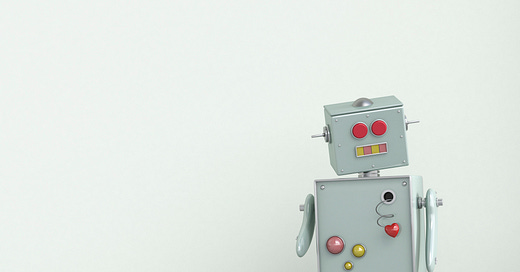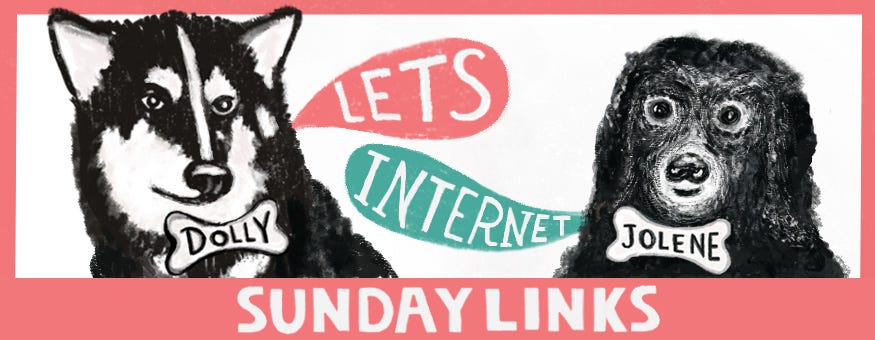Every week, MYAM assistant editor
and I round up the things we’ve been reading on the internet. This post is paywalled because, while the bulk of this newsletter is free, MYAM is a full-time job for me and a part-time job for two other people, and it would not exist without paying subscribers.This week, I read two newsletters where the authors turned to Chat GPT for advice on dating. Both newsletters — To the Bed and
— are anonymous and are endlessly fascinating reads that offer unfiltered insight into the sex lives of middle-aged women.I’ve lived long enough to remember the promised tech revolutions of the VR headsets and 3D printing. I remember how ebooks were going to destroy the paper book as we know it! Those technologies exist, but they haven’t drastically revolutionized our lives as we were originally promised. Instead, they became just more products; addenda to the lives we live.
But I wonder about AI. The way it’s being forced into every aspect of our existence. You can’t even connect to customer service now without fighting five rounds with an AI chatbot (which only makes me insane with frustration and regret that I ever purchased any Samsung products). My kids’ school accidentally bought the AI-slop plagiarized knockoffs of a few books, and my daughter came home telling me that Of Mice and Men read like it was written by a child. And I made her bring the book home and show me, and we figured it out and told the school librarian.
This revolution feels different than the others, because AI is not just being pushed as as replacement for our labor, but for our friendships, our romance. It’s being pushed into our personal lives.
In April, Cosmopolitan UK reported:
But a curious story is emerging within the demographic data: men are way more likely to use ChatGPT than women (they make up about 85% of its usership) and they are nearly three times more likely than women to use it for relationship advice. Something that tracks when you consider that men are both more likely to trust generative AI than women and less likely to go to therapy (only 36% of NHS therapy referrals are for men).
After reading about this, I asked ChatGPT a dating question that was on my mind, and I found the advice surprisingly emotionally intuitive and empathetic.




